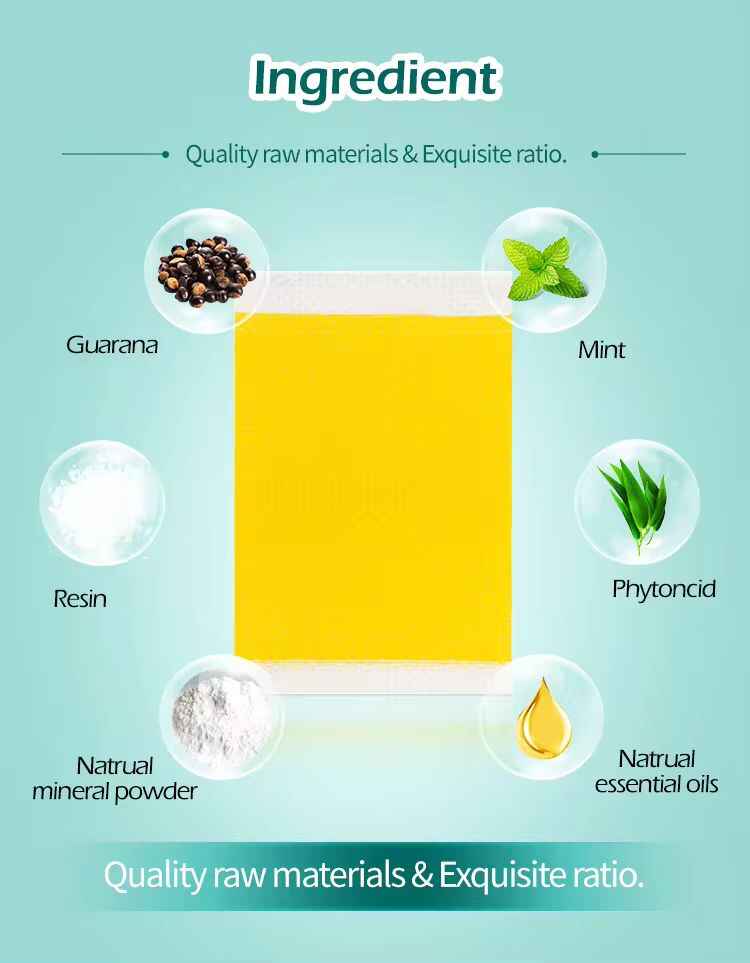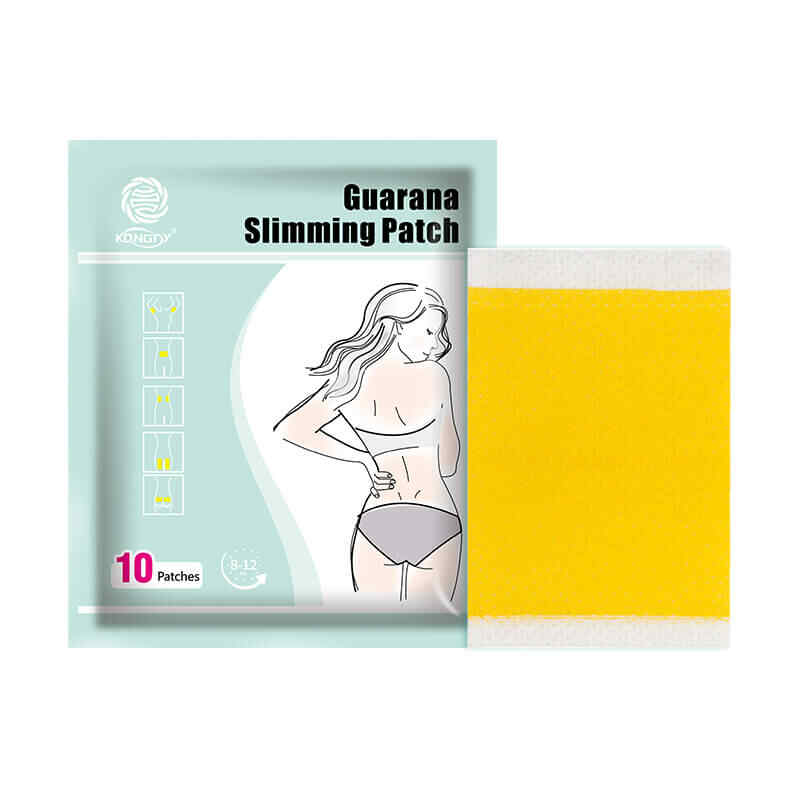How Do Custom Weight Loss Patches Impact Quality Control?
In today’s health and wellness industry, weight loss patches are becoming increasingly popular for their convenience, targeted effectiveness, and non-invasive use. With the growing demand, businesses are turning to weight loss patches Manufacturer and weight loss patches OEM partners to deliver innovative products that stand out. One of the most important aspects of this development process is quality control (QC)—a critical factor that directly affects safety, effectiveness, and brand reputation.
When businesses move from Private Label weight loss patches to Custom weight loss patches, the complexity of quality control increases significantly. This article explores how customization impacts quality control and why working with the right weight loss patches Supplier is essential for long-term success.

The Growing Market for Custom Weight Loss Patches
The health and fitness sector has shifted toward personalized solutions. Consumers are no longer satisfied with generic products; they want customized patches that align with their unique preferences, lifestyles, and health goals. This has created opportunities for brands to differentiate themselves by offering:
Custom weight loss patches with unique herbal blends
Enhanced delivery systems for faster absorption
Eco-friendly or hypoallergenic materials
Specific formulations tailored for different demographics
However, as customization increases, so do the demands on quality control. Ensuring that every patch is safe, effective, and consistent is more challenging when formulations, materials, and production processes vary.
Why Quality Control Matters in Custom Weight Loss Patches
Quality control is not just a regulatory requirement—it’s the foundation of consumer trust. A lapse in QC can lead to product recalls, customer dissatisfaction, or even health risks. For Custom weight loss patches, the stakes are even higher because:
Complex Formulations Require Rigor
Custom blends often include unique herbal ingredients, vitamins, or active compounds. Each new ingredient must undergo rigorous testing for purity, potency, and safety.Consistency Is Harder to Achieve
Standard Private Label weight loss patches typically follow a fixed formula. In contrast, customization introduces variability, making batch-to-batch consistency more difficult to maintain.Regulatory Compliance Becomes More Demanding
Different regions may have varying regulations for herbal or nutraceutical products. Customization requires careful documentation and adherence to international standards.Brand Reputation Is on the Line
Customers trust brands to deliver safe and effective products. Poor quality control in Custom weight loss patches can damage credibility, leading to lost sales and negative reviews.
The Role of Weight Loss Patches Manufacturers in QC
A reliable weight loss patches Manufacturer ensures that quality control is integrated into every stage of production. The best manufacturers implement Good Manufacturing Practices (GMP), advanced testing protocols, and transparent processes.
Key Areas of QC Managed by Manufacturers:
Raw Material Inspection: Ensuring that herbal extracts, adhesives, and backing materials meet safety standards.
Formulation Accuracy: Verifying the correct concentration of active ingredients in each patch.
Adhesion and Release Testing: Checking how well patches adhere to the skin and deliver active compounds over time.
Stability Testing: Guaranteeing product integrity during storage and transportation.
Microbial Testing: Ensuring the absence of harmful contaminants.
When creating Custom weight loss patches, the manufacturer’s expertise in these areas directly impacts the product’s final quality.
OEM and Quality Control: A Strategic Partnership
Choosing the right weight loss patches OEM partner is one of the most important decisions a brand can make. OEM manufacturers not only produce patches but also provide R&D support, compliance guidance, and customization flexibility.
Benefits of OEM in QC:
Access to Specialized Testing Facilities: OEM manufacturers often have in-house labs to conduct comprehensive quality tests.
Regulatory Guidance: They help ensure that Custom weight loss patches comply with FDA, EU, or other international standards.
Scalable QC Processes: OEM partners can adapt testing protocols as brands expand from Private Label weight loss patches to customized products.
In short, OEM services enhance quality control by combining customization with professional oversight.
Challenges of Quality Control in Custom Weight Loss Patches
While customization offers differentiation, it also presents unique challenges:
Ingredient Variability
Herbal ingredients may vary in potency depending on source, harvest season, or supplier. Ensuring uniform quality requires strict supplier verification.Allergen and Sensitivity Risks
Introducing new ingredients increases the chance of skin sensitivity or allergic reactions. Extra dermatological testing is essential.Complex Supply Chains
Customization often requires sourcing ingredients from multiple suppliers, which complicates traceability and consistency.Increased Production Costs
Extensive quality testing for custom formulations can increase costs, but it’s a necessary investment for brand credibility.
How Suppliers Contribute to Quality Control
A weight loss patches Supplier plays an equally important role in maintaining QC. Suppliers ensure that raw materials are safe, traceable, and certified. Brands should look for suppliers who:
Provide Certificates of Analysis (COA) for each ingredient.
Follow ethical and sustainable sourcing practices.
Maintain transparency in their supply chain.
Work closely with manufacturers to guarantee consistency.
When suppliers and manufacturers collaborate effectively, brands can confidently deliver Custom weight loss patches that meet high-quality standards.
Private Label vs. Custom Weight Loss Patches: QC Differences
Private Label weight loss patches follow pre-formulated recipes, making QC more straightforward and cost-effective.
Custom weight loss patches, however, require deeper testing, formulation verification, and stricter controls.
Brands starting with Private Label options may transition to Custom patches once they establish market presence. During this shift, quality control becomes more intensive, requiring a stronger partnership with both the Manufacturer and the Supplier.
Best Practices for Ensuring Quality in Custom Weight Loss Patches
Choose a GMP-Certified Manufacturer
Always partner with a weight loss patches Manufacturer that adheres to Good Manufacturing Practices.Verify Supplier Credentials
Ensure that every weight loss patches Supplier provides certified, traceable raw materials.Invest in Testing
Include stability, microbial, adhesion, and release tests in your QC process.Document Everything
Maintain clear records of formulations, test results, and compliance reports.Conduct Regular Audits
Audit both manufacturers and suppliers to ensure continuous compliance.
Conclusion
Custom weight loss patches offer brands a powerful way to stand out in a competitive market. However, customization brings greater complexity to quality control, requiring close collaboration between weight loss patches Manufacturers, weight loss patches OEM partners, and weight loss patches Suppliers. By prioritizing rigorous QC practices, brands can ensure their patches are safe, effective, and trustworthy—building consumer confidence and long-term loyalty.
Related Questions and Answers
Q1: What is the biggest QC challenge in Custom weight loss patches?
A1: Ingredient variability is the most common challenge, as herbal potency can differ between suppliers or harvests.
Q2: Can I start with Private Label weight loss patches and move to Custom patches later?
A2: Yes, many brands begin with Private Label options for easier QC and gradually shift to Custom patches as they grow.
Q3: How do OEM manufacturers help with quality control?
A3: OEM partners provide in-house testing, regulatory guidance, and scalable QC processes tailored to Custom patches.
Q4: What should I look for in a weight loss patches Supplier?
A4: Look for suppliers who provide COAs, practice ethical sourcing, and maintain transparent supply chains.
Q5: Do Custom weight loss patches cost more to test?
A5: Yes, but the investment ensures safety, compliance, and stronger consumer trust.






